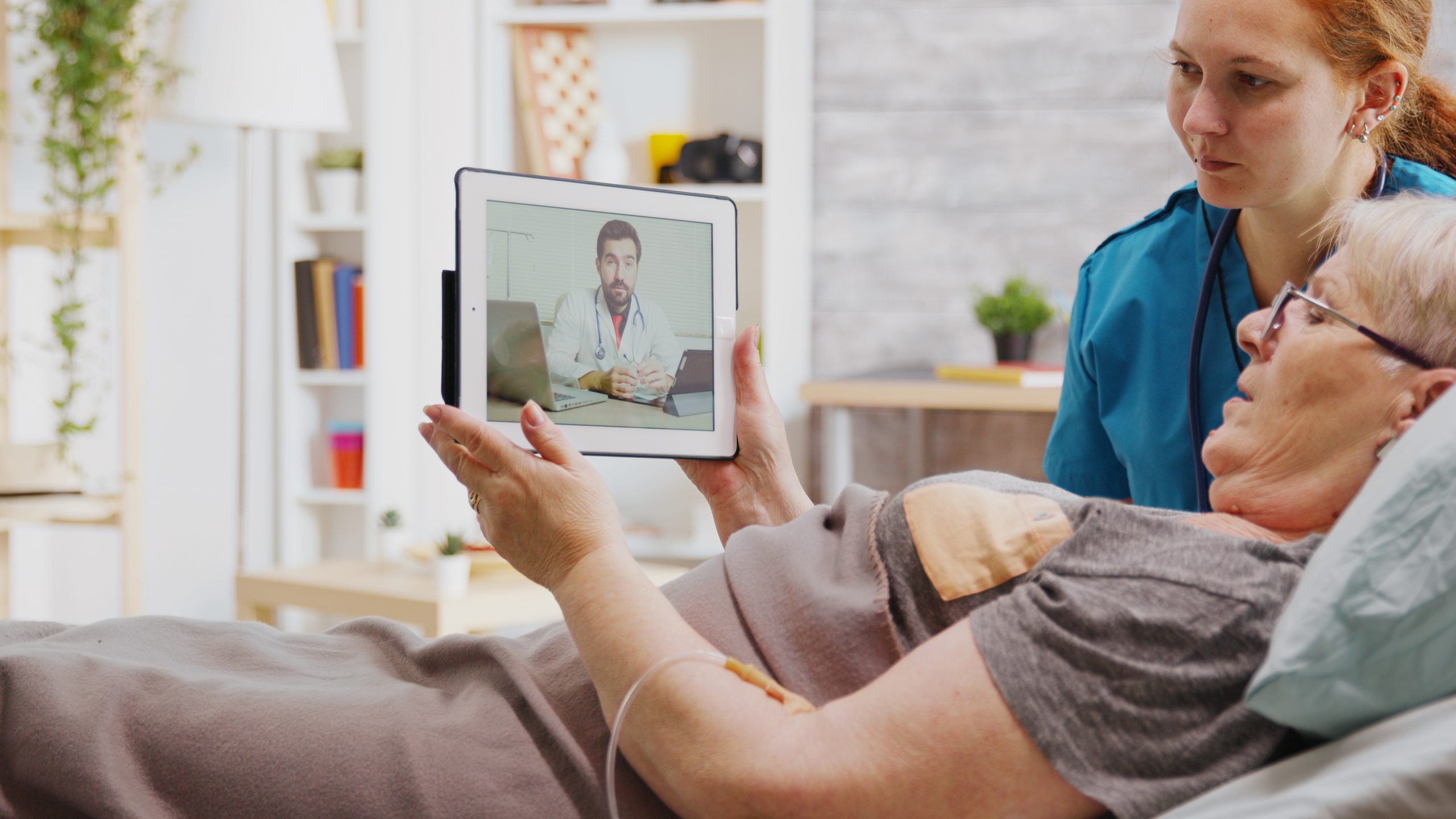What is telemedicine?
According to the World Medical Association (WMA), telemedicine is the practice of medicine at a distance, in which procedures, diagnosis, therapeutic decisions and subsequent treatment recommendations are based on patient data, documents and other information transmitted by telecommunication systems.
Telemedicine can be performed either between a patient and a doctor, or between two or more doctors and/or other health professionals.
Since 2018, AMM has recommended the widespread use of telemedicine, especially in cases where the patient cannot see a suitably qualified doctor in time, due to problems accessing these professionals.
Telemedicine saves lives
The main benefit of telemedicine is to expand access to healthcare for the entire population. Telemedicine breaks down access barriers in all healthcare systems in which it is used, enables effective patient monitoring and, most importantly, facilitates patient referrals in their healthcare pathway.
Why regulate telemedicine in Brazil?
The regulation of telemedicine is necessary not only to ensure the expansion of access to healthcare for the population, but, mainly, to guarantee the autonomy of the medical professional and the patient in using or not using this technology.
The regulation of telemedicine must enable the establishment of standards of care by healthcare establishments and require a secure environment for the confidentiality of information.
In Brazil, the regulation of telemedicine could reduce the existing “care gaps”, especially in the North and Northeast regions, places with difficulties in providing care in emergency cases or even in simple consultations with a specialist doctor.
– There is a shortage of doctors in the interior
The inequality indicator, developed by the Faculty of Medicine of the University of São Paulo for the 2020 Medical Demographics, calculates the ratio between the distribution of doctors in capitals and in municipalities in the interior. When collecting data by state, it was found that most of them are above the national average (3.8%), which means a strong concentration of professionals in the capitals. Some states stand out:

– There is a lack of specialists
The number of specialist doctors outside of large urban centers makes it difficult for the population to access care. For example, ischemic heart disease is the main cause of death among all Brazilians. Most cardiologists (51%) are in three states: São Paulo, Rio de Janeiro and Minas Gerais. Data from the 2020 Medical Demographics indicate the concentration of specialists:

Service numbers in 2020
With the approval of Law No. 13,989/2020, the number of telemedicine appointments has been increasing, guaranteeing and expanding access to healthcare throughout the country, the main benefit that telemedicine brings to healthcare systems.
Data collected by Saúde Digital Brasil shows the exponential growth of patients served through information and communication technologies:
– Number of services provided between 2020 and 2021: more than 7,500,000 services provided
– Service resolution rate:
– Individual emergency care consultations: 91%
– Essential care to save the patient’s life: 6%
– First consultations: 87%
– Types of services:
– Videoconference services: 87%
– Telephone service: 13%
– Support via messages/chat: 0%
– Number of doctors: 200
– Patient care by age group:
– Under 16s: 7%
– Between 16 and 65 years: 84%
– 65 years or older: 8%
– Patient satisfaction level: 90% excellent or good
– Number of Federative Units served, on average: 24
What is essential in telemedicine regulation in Brazil?
– Doctor and patient autonomy
The regulation of telemedicine in the country must guarantee full autonomy to the doctor to decide whether or not it is possible to provide remote care for that specific clinical case.
It should also be the patient's prerogative to decide whether or not to receive telemedicine care, agreeing to any possible limitations arising from this type of care.
– Guarantee of service standards, security and confidentiality of information
It must be ensured that establishments and professionals that provide telemedicine services maintain health licensing and service standards, as defined in their protocols.
Confidentiality of information and the use of a secure environment must also be a requirement for good telemedicine practice.
– Possibility of first consultation remotely:
A survey of international regulations conducted by Saúde Digital Brasil in several countries indicates that there are practically no restrictions on the first remote consultation in other countries. One exception is Uruguay, which imposes the need for prior physical contact with the patient.
The medical professional must have the autonomy to evaluate each patient and decide whether or not to continue with remote care. This is the main guarantee that the regulation of telemedicine in the country must guarantee.
– Broad jurisdiction for doctors registered in all Brazilian states
Currently, doctors from all over the country can practice medicine in any state of the federation. However, most of them are concentrated in some Federative Units and in the capitals.
It is necessary to reduce the existing gaps in healthcare, ensuring that medical professionals provide care to patients in the country, and the service must be considered to be provided where the doctor is located at the time of the service.
Establishing limits on jurisdiction is creating unnecessary obstacles to the health of Brazilians
– Fair and adequate remuneration
During the pandemic, the importance of valuing doctors became clear. Professionals must be offered adequate working conditions, which also means fair remuneration in accordance with their duties and responsibilities.





